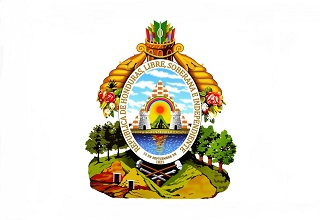Regarding the Inspection and Quarantine Requirements for Export of Oats from Sweden to China
According to the regulations of the Chinese Customs and the Swedish Ministry of Rural Affairs and Infrastructure regarding phytosanitary requirements for oats, effective immediately, Swedish oats meeting the following requirements are permitted for import:
I. Inspection and Quarantine Basis
(1) The Biosafety Law of the People's Republic of China;
(2) The Law of the People's Republic of China on Entry and Exit Animal and Plant Quarantine and its implementing regulations;
(3) The Food Safety Law of the People's Republic of China and its implementing regulations;
(4) The Measures of the People's Republic of China on the Administration of Food Safety of Imported and Exported Food;
(5) The Protocol between the General Administration of Customs of the People's Republic of China and the Swedish Ministry of Rural Affairs and Infrastructure on Phytosanitary Requirements for the Export of Swedish Oats to China.
II. Permitted Imported Commodity Name
In this announcement, oats (Avena sativa) refer to non-seed oat seeds produced in Sweden and exported to China for consumption or food processing.
III. Permitted Place of Origin
The entire territory of Sweden.
IV. Enterprise Registration
Enterprises engaged in the production, processing, and storage of oats exported to China must be registered with the Chinese Customs to ensure compliance with Chinese inspection and quarantine requirements. The Swedish Ministry of Rural Affairs and Infrastructure should submit a list of enterprises engaged in the production, processing, and storage of oats to Chinese Customs in advance. After review and approval, these enterprises will be registered and their names published on the official website of Chinese Customs.
V. Pests of Concern to Chinese Customs
Oats exported to China must not carry the following pests:
1. Tobacco ringspot virus
2. Tomato black ring virus
3. Barley stripe mosaic virus
4. Ambrosia artemisiifolia
5. Lolium temulentum
6. Sorghum halepense
7. Avena ludoviciana
8. Claviceps purpurea
9. Oculimacula yallundae
10. Cephus pygmeus
11. Mayetiola destructor
12. Oscinella frit
VI. Pre-shipment Requirements
(I) Production Requirements
1. The Swedish Ministry of Rural Affairs and Infrastructure should supervise enterprises to establish Integrated Pest Management (IPM) systems to reduce the incidence of pests of concern to Chinese Customs. If an outbreak of pests of concern to Chinese Customs or other dangerous pests occurs in Sweden, the Swedish Ministry of Rural Affairs and Infrastructure should immediately suspend oat exports from the affected areas, conduct investigations, and implement control measures. Exports may resume only after approval by Chinese Customs.
2. The Swedish Ministry of Rural Affairs and Infrastructure should supervise the planting, harvesting, storage, and transportation of oats exported to China. Before shipment, enterprises should take measures such as sieving to remove impurities, ensuring that the oats are free of soil, plant debris, weed seeds, and other foreign contaminants.
(II) Packaging and Transportation Requirements
1. Oats exported to China must be transported in packaged form. The packaging must be clean, hygienic, breathable, new, and made of materials that meet Chinese phytosanitary and food safety requirements. Each package must be clearly marked with the Chinese characters "本产品输往中华人民共和国" along with the product name, the name of the production, processing, and storage company, and its Chinese Customs registration number, as well as other traceability information. The packaging and labeling of pre-packaged oats sold directly must comply with the Chinese Regulations on the Management of Prepackaged Food Packaging and Labeling (GB 7718).
2. Transport vehicles for oats exported to China must meet hygiene and epidemic prevention requirements. A thorough inspection must be conducted before loading to prevent the contamination of weed seeds, live insects, other grain impurities, plant residues, soil, etc.
(III) Product Requirements
Oats exported to China must comply with Chinese import phytosanitary and food safety laws, regulations, and standards. They must not carry harmful organisms of concern to Chinese Customs, live insects, mites, mollusks, soil, feathers, animal feces, weed seeds, branches, leaves, or other plant and animal residues. They must not be intentionally mixed with other grains or foreign impurities.
(IV) Pre-export Inspection and Quarantine and Certificate Requirements.
Before export, the Swedish Ministry of Rural Affairs and Infrastructure shall conduct inspection and quarantine on oats exported to China, issue a phytosanitary certificate for oats that meet the requirements, and indicate "The consignment is in compliance with the requirements described in the Protocol of Phytosanitary Requirements for the Export of oats from Sweden to China, and is free from any pests concerned by China" in English in the supplementary declaration section, while also indicating the name of the enterprise that produced, processed, and stored the goods, its Chinese customs registration number, and traceability information such as the means of transport number. Goods found to contain live insects shall be fumigated before export, and the treatment indicators shall be noted on the phytosanitary certificate.
VII. Import Inspection and Quarantine
(I) Document Verification.
1. Verify whether the goods come from a registered enterprise;
2. Verify whether the phytosanitary certificate is genuine and valid.
(II) Goods Inspection.
In accordance with relevant laws, regulations, administrative regulations, and rules, and in conjunction with this announcement, oats shall be subject to inspection and quarantine. Goods that pass the inspection shall be allowed entry.
(III) Handling of Non-compliant oats.
1. Oats without a valid phytosanitary certificate will be returned or destroyed.
2. Oats from unregistered enterprises will be returned or destroyed.
3. Oats containing genetically modified ingredients not approved by the Chinese government will be returned or destroyed.
4. If live quarantine pests or other live pests are found, effective treatment methods will be used; otherwise, they will be returned or destroyed.
5. Other oats that do not comply with Chinese laws, regulations, and standards regarding import quarantine and food safety will be handled according to relevant regulations.
Upon discovering any of the above non-compliance, Chinese Customs will notify the Swedish Ministry of Rural Affairs and Infrastructure and, depending on the severity, take measures such as suspending the export licenses of the relevant enterprises until the Swedish Ministry of Rural Affairs and Infrastructure takes effective corrective measures.
GACC




